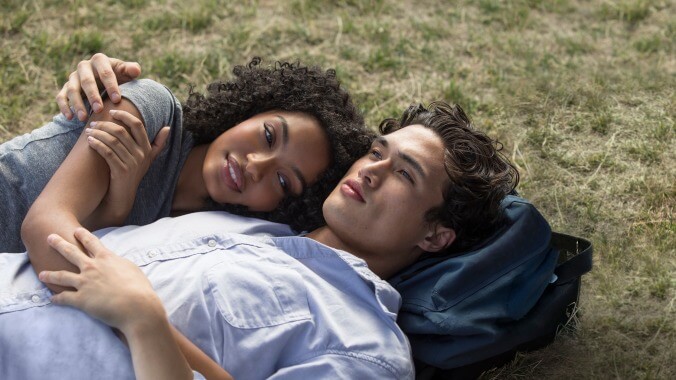The Sun Is Also A Star turns a compelling premise into a lackluster teen romance

Midway through The Sun Is Also A Star, a cynical teen complains that all poems are about one of three things: love, sex, or the stars. While you could certainly quibble with her literary analysis—especially given that she’s speaking to a teenage poet whose influences range from Emily Dickinson to Tupac Shakur—her larger point stands. Genres often return to the same subject matter over and over again, and it helps to mix things up with something more original. Unfortunately, The Sun Is Also A Star only halfway takes that lesson to heart. Although the big-screen adaptation of Nicola Yoon’s best-selling young adult novel finds welcome specificity in its world and character building, it never rises above the most generic of platitudes in its central teen love story.
The Sun Is Also A Star largely unfolds over the course of 24 hours, as a chance meeting leads two savvy New York City high schoolers to spend the day criss-crossing the city together. Daniel Bae (Riverdale’s Charles Melton) is a romantic poet who believes fate has brought them together. Natasha Kingsley (Grown-ish’s Yara Shahidi) is a data-driven aspiring scientist who thinks love is just something humans made up to give meaning to their hormonal impulses. To prove her wrong, Daniel suggests they try the “36 Questions That Lead To Love” formula that was popularized by a 2015 New York Times article. If he can make her fall for him, they’ll have scientific proof that love is real. It’s the sort of absurdly grandiose idea you can imagine teenagers believing in, but which the film invests in a bit too earnestly itself.
 Keep scrolling for more great stories.
Keep scrolling for more great stories.
